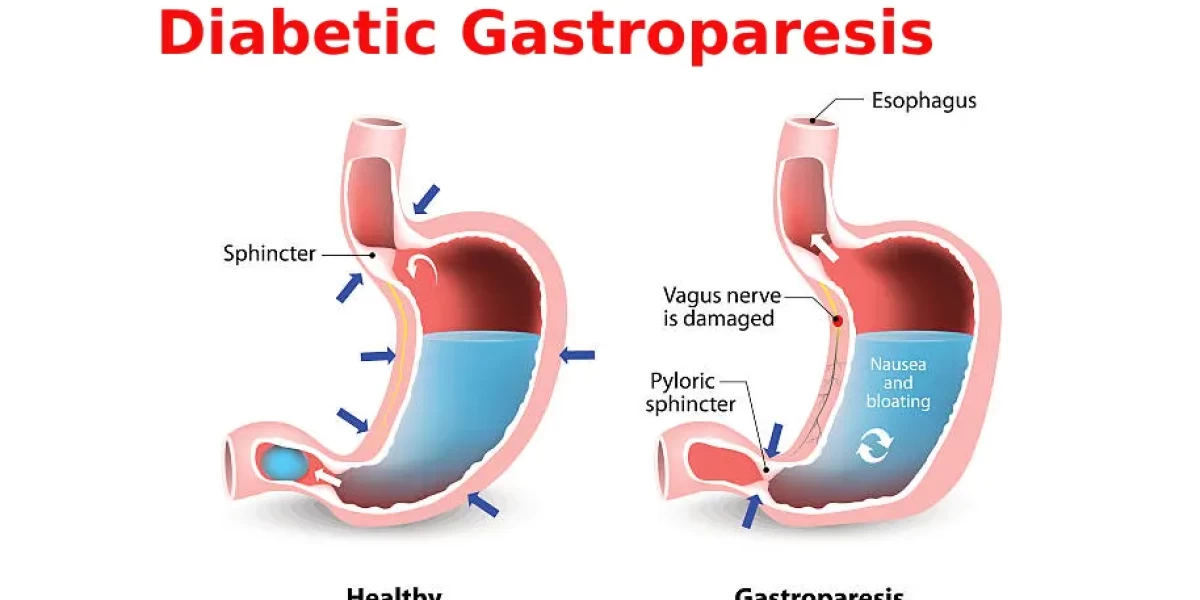Introduction
Antisocial Personality Disorder (ASPD) is a complex mental health condition that profoundly influences an individual’s thoughts, behaviors, and interactions with others. While popular culture often labels individuals with ASPD as “sociopaths,” mental health professionals refrain from using this term in clinical discussions. In this article, we delve into the impact of ASPD on individuals and explore its defining features.
What Is Antisocial Personality Disorder?
ASPD is characterized by a pervasive pattern of disregard for societal norms, impulsivity, and a lack of empathy. Here are the key aspects of ASPD:
- Behavioral Traits:
- Individuals with ASPD consistently violate the rights of others, engaging in illegal acts, lying, and manipulating.
- They exhibit impulsivity, irritability, and aggressiveness, often resorting to physical fights or assaults.
- Emotional Disconnect:
- A hallmark feature is the absence of remorse or guilt for harmful actions.
- Empathy and concern for others are notably deficient.
- Social Dysfunction:
- Relationships suffer due to trust issues, deceit, and a disregard for social norms.
- Job instability, financial problems, and legal troubles are common consequences.
Long-Term Health Risks
- Mental Health Conditions:
- People with ASPD face an increased risk of several mental health disorders, including anxiety, bipolar disorder, and post-traumatic stress disorder.
- Fortunately, many of these conditions can be managed through therapy and medication.
- Depression and ASPD:
- Depression often coexists with ASPD. Selective serotonin reuptake inhibitors (SSRIs) may help reduce aggression and impulsivity in individuals with ASPD.
- Substance Use and Dependence:
- ASPD is linked to smoking, drug use, and alcohol dependence.
- Over half of individuals with ASPD smoke, and a significant proportion struggle with drug use disorders.
Physical Health Risks
- Risk-Taking Behavior:
- People with ASPD tend to take greater risks, often disregarding personal safety.
- Coexisting mental health issues may contribute to physical health problems.
- Increased Risk of Conditions:
- Studies reveal that individuals with ASPD have a higher risk of coronary artery disease and liver disease.
- The reasons behind this association are multifaceted and not fully understood.
Signs and Symptoms of ASPD
Antisocial Personality Disorder (ASPD) is a mental health condition characterized by a consistent disregard for societal norms, a lack of empathy, and a penchant for manipulative behaviour. Here are the telltale signs:
- Ignoring Right and Wrong:
- Individuals with ASPD repeatedly flout ethical boundaries. They dismiss societal rules and engage in illegal activities without remorse.
- Their actions may include theft, fraud, or physical aggression.
- Pathological Lying:
- Lying becomes second nature. They fabricate stories to manipulate others or gain personal advantage.
- Their charm and wit serve as tools for deception.
- Lack of Empathy:
- Empathy is absent. They show no concern for others’ feelings or well-being.
- Their interactions are callous and indifferent.
- Impulsivity and Aggression:
- Impulsivity drives their behavior. They act without considering the consequences.
- Aggression, hostility, and violence are common traits.
- Legal Troubles:
- ASPD individuals frequently encounter legal problems due to their criminal behavior.
- Arrests, convictions, and run-ins with the law are part of their pattern.
- Risk-Taking Behavior:
- They engage in dangerous activities without regard for personal safety or the safety of others.
- Recklessness defines their approach to life.
- Work and Financial Irresponsibility:
- Consistently failing to meet work or financial responsibilities is typical.
- Job instability and financial troubles follow them.
Causes of ASPD
- Genetic Factors:
- Genetics play a role. Some individuals are genetically predisposed to developing ASPD.
- Inherited traits may influence brain function and behavior.
- Environmental Influences:
- Childhood experiences matter. Neglect, abuse, and unstable family environments contribute.
- Traumatic upbringing can trigger the development of ASPD.
- Gender and Childhood Conduct Disorder:
- ASPD is more common in men.
- Symptoms often emerge during childhood as conduct disorder, characterized by aggression, lying, and rule violations.
Risk Factors for ASPD
Antisocial Personality Disorder (ASPD) is a challenging psychological disorder marked by a persistent violation of social rules and an absence of empathy. While no specific medical tests can diagnose ASPD, certain risk factors increase the likelihood of its development:
- Childhood Conduct Disorder:
- A history of childhood conduct disorder, characterized by serious behavior problems like aggression, lying, and rule violations, is a significant risk factor for ASPD.
- Conduct disorder often precedes the onset of ASPD symptoms.
- Family History:
- Having a family history of ASPD or other personality disorders increases susceptibility.
- Genetic factors play a role, making some individuals more vulnerable to developing ASPD.
- Childhood Abuse or Neglect:
- Traumatic experiences during childhood, such as physical or sexual abuse, neglect, or an unstable family environment, contribute to the risk of ASPD.
- Early adverse experiences shape personality development.
- Unstable or Violent Family Life:
- Growing up in an environment marked by instability, violence, or dysfunction amplifies the risk.
- Exposure to chaotic family dynamics influences behavior patterns.
How Is ASPD Diagnosed?
- No Self-Assessment or Blood Test:
- ASPD cannot be self-diagnosed, and there are no specific blood tests or imaging exams for its confirmation.
- Seeking professional evaluation is crucial if you suspect ASPD.
- Consulting a Healthcare Provider:
- Start by seeing a primary care physician (PCP) who will consider your health history, perform a physical examination, and assess your symptoms.
- The PCP may then refer you to a mental health specialist for further evaluation.
- Comprehensive Assessment:
- A mental health professional will conduct a comprehensive evaluation.
- This assessment includes exploring thoughts, feelings, relationships, behavioral patterns, and family history.
- No single test can definitively diagnose ASPD, but the overall clinical picture informs the diagnosis.
- DSM-5 Criteria:
- ASPD diagnosis aligns with the criteria outlined in the Diagnostic and Statistical Manual of Mental Disorders (DSM-5).
- These criteria emphasize observable behaviors related to irresponsible, delinquent, and criminal conduct.
- Symptoms include repeated lying, aggression, disregard for safety, and mistreatment of others.
- Treatment Considerations:
- While ASPD is challenging to treat, early recognition is essential.
- Research on treatment options is ongoing, and promising approaches include psychotherapy and medication.
Risk Factors for ASPD
Antisocial Personality Disorder (ASPD) is a challenging psychological disorder marked by a persistent violation of social rules and an absence of empathy. While no specific medical tests can diagnose ASPD, certain risk factors increase the likelihood of its development:
- Childhood Conduct Disorder:
- A history of childhood conduct disorder, characterized by serious behavior problems like aggression, lying, and rule violations, is a significant risk factor for ASPD.
- Conduct disorder often precedes the onset of ASPD symptoms.
- Family History:
- Having a family history of ASPD or other personality disorders increases susceptibility.
- Genetic factors play a role, making some individuals more vulnerable to developing ASPD.
- Childhood Abuse or Neglect:
- Traumatic experiences during childhood, such as physical or sexual abuse, neglect, or an unstable family environment, contribute to the risk of ASPD.
- Early adverse experiences shape personality development.
- Unstable or Violent Family Life:
- Growing up in an environment marked by instability, violence, or dysfunction amplifies the risk.
- Exposure to chaotic family dynamics influences behavior patterns.
How Is ASPD Diagnosed?
- No Self-Assessment or Blood Test:
- ASPD cannot be self-diagnosed, and there are no specific blood tests or imaging exams for its confirmation.
- Seeking professional evaluation is crucial if you suspect ASPD.
- Consulting a Healthcare Provider:
- Start by seeing a primary care physician (PCP) who will consider your health history, perform a physical examination, and assess your symptoms.
- The PCP may then refer you to a mental health specialist for further evaluation.
- Comprehensive Assessment:
- A mental health professional will conduct a comprehensive evaluation.
- This assessment includes exploring thoughts, feelings, relationships, behavioral patterns, and family history.
- No single test can definitively diagnose ASPD, but the overall clinical picture informs the diagnosis.
- DSM-5 Criteria:
- ASPD diagnosis aligns with the criteria outlined in the Diagnostic and Statistical Manual of Mental Disorders (DSM-5).
- These criteria emphasize observable behaviors related to irresponsible, delinquent, and criminal conduct.
- Symptoms include repeated lying, aggression, disregard for safety, and mistreatment of others.
- Treatment Considerations:
- While ASPD is challenging to treat, early recognition is essential.
- Research on treatment options is ongoing, and promising approaches include psychotherapy and medication.
Duration of ASPD
Antisocial Personality Disorder (ASPD) is a challenging psychological disorder marked by a persistent violation of social rules and an absence of empathy. While ASPD is considered a lifelong condition, certain symptoms may evolve over time. Let’s explore the duration, treatment options, and preventive strategies related to ASPD.
Duration and Lifelong Nature
- ASPD typically begins early in life, often by age 8, and is initially diagnosed as a conduct disorder during childhood. The diagnosis converts to ASPD at age 18 if antisocial behaviors persist.
- While ASPD tends to be chronic and lifelong for most individuals, some symptoms—especially destructive and criminal behavior—may decrease over time.
- Factors influencing this decrease include aging effects on the mind and body, increased awareness of the impact of antisocial behavior, and other individual-specific factors.
Treatment and Medication
- Psychotherapy (Talk Therapy):
- Cognitive-Behavioral Therapy (CBT): A widely used approach that focuses on changing negative thought patterns and behaviors. CBT helps individuals recognize how their actions affect others and develop healthier coping strategies.
- Skills Training: Helps improve social skills, anger management, and impulse control.
- Medication:
- While there’s no specific medication for ASPD, some drugs can manage associated symptoms:
- Anti-Anxiety Medications (e.g., Etizolam, Clonazepam): Prescribed for short-term relief of anxiety attacks.
- Mood Stabilizers (e.g., Oxcarbazepine, Valproate, Lithium): Used to control mood fluctuations.
- Support Groups and Family Counseling:
- Support groups provide a sense of community and understanding for individuals with ASPD.
- Family counseling helps resolve conflicts, improve communication, and foster healthier relationships.
Prevention Strategies
- Early Intervention:
- Identifying and addressing behavioral issues in childhood can reduce the risk of developing ASPD.
- Interventions during adolescence, such as counseling and skill-building, can redirect negative behaviors.
- Promoting Healthy Relationships:
- Encourage positive social interactions, empathy, and prosocial behaviors.
- Teach conflict resolution and emotional regulation skills.
- Addressing Substance Abuse:
- Substance abuse often coexists with ASPD. Early intervention and treatment for substance use disorders are crucial.
Complications of ASPD
Antisocial Personality Disorder (ASPD) casts a long shadow, affecting not only the individual but also those around them. Let’s delve into the potential complications:
- Legal Problems:
- Individuals with ASPD often find themselves entangled in legal issues due to their disregard for rules and boundaries.
- Arrests, convictions, and imprisonment are common consequences.
- Relationship Difficulties:
- ASPD strains relationships. Lack of empathy, manipulation, and deceit create rifts with family, friends, and partners.
- Trust erodes, leading to isolation and emotional turmoil.
- Substance Abuse:
- People with ASPD are more likely to smoke, use illegal drugs, and become alcohol-dependent.
- Substance abuse exacerbates their impulsive behavior and complicates treatment.
- Co-Occurring Mental Health Disorders:
- ASPD often coexists with other conditions:
- Depression: The association between ASPD and depression is notable. Treatment options include therapy and medication.
- Anxiety, Bipolar Disorder, and PTSD: These conditions may accompany ASPD and require specialized care.
Conclusion
In summary, ASPD is a challenging condition with far-reaching effects. If you suspect symptoms in yourself or someone else:
- Seek Professional Help: Early recognition is crucial. Consult a mental health professional for evaluation and guidance.
- Promote Understanding: Educate yourself and others about ASPD to reduce stigma and foster empathy.
- Encourage Treatment: While ASPD is lifelong, treatment can improve quality of life. Psychotherapy and support groups offer hope.
FAQ's
- What is the cause of antisocial personality disorder?
The cause of antisocial personality disorder (ASPD) is believed to be a combination of genetic, environmental, and psychological factors. Genetic predisposition may play a role, as ASPD tends to run in families. Environmental factors such as childhood trauma, abuse, or neglect, as well as growing up in a family or community where violent or criminal behavior is common, can also contribute. Additionally, abnormalities in brain function and structure, particularly in areas related to impulse control and emotional regulation, may be involved.
2. What is the treatment for being antisocial?
Treatment for antisocial personality disorder typically involves psychotherapy and, in some cases, medication. Cognitive-behavioral therapy (CBT) is commonly used to help individuals recognize and change destructive thought patterns and behaviors. In some cases, medications such as mood stabilizers, antipsychotics, or antidepressants may be prescribed to manage symptoms like aggression or depression. However, treating ASPD can be challenging, and long-term commitment to therapy is often required.
3. What are three symptoms of antisocial personality disorder?
Three symptoms of antisocial personality disorder include:
- Persistent disregard for the rights of others, including repeated violation of social norms and laws.
- Deceitfulness, including lying, using aliases, or conning others for personal profit or pleasure.
- Demonstrates no remorse after harming others, shown by indifference or justifying the mistreatment or theft from others.
4. What are the prevention methods for personality disorder?
Preventing personality disorders involves early intervention and addressing risk factors. Key strategies include:
- Providing a stable, supportive, and nurturing environment during childhood.
- Early identification and treatment of mental health issues in children and adolescents.
- Educating parents and caregivers about effective parenting strategies and the importance of healthy attachment and communication.
- Reducing exposure to traumatic events and addressing any trauma promptly with professional help.
5. What is the treatment for personality disorder?
Treatment for personality disorders typically includes psychotherapy, medication, and lifestyle changes. Psychotherapy, such as cognitive-behavioral therapy (CBT), dialectical behavior therapy (DBT), or psychodynamic therapy, helps individuals understand and change their thought patterns and behaviors. Medications may be prescribed to manage symptoms like depression, anxiety, or mood swings. Additionally, lifestyle changes, including stress management, healthy relationships, and self-care, are important for overall well-being.
6. What are five symptoms of personality disorder?
Five symptoms of personality disorder can include:
- Distorted thinking patterns, such as extreme black-and-white thinking or paranoia.
- Problematic emotional responses, including intense and unstable emotions.
- Impulsive and risky behaviors, like substance abuse or reckless driving.
- Difficulty forming and maintaining healthy relationships due to trust issues or manipulative behaviors.
- Persistent patterns of behavior that deviate markedly from cultural expectations, leading to significant personal distress or impairment in social, occupational, or other important areas of functioning.
7. What is the cause of personality disorder?
The cause of personality disorders is complex and multifactorial, involving a combination of genetic, environmental, and psychological factors. Genetic predisposition can increase the likelihood of developing a personality disorder. Environmental influences, such as childhood trauma, abuse, neglect, and unstable family dynamics, play a significant role. Additionally, brain structure and function abnormalities, as well as the individual's temperament and coping mechanisms, contribute to the development of personality disorders.
8. What are the 7 different personality disorders?
The seven different personality disorders, according to the DSM-5, are categorized into three clusters:
- Cluster A (Odd/Eccentric)
- Paranoid Personality Disorder
- Schizoid Personality Disorder
- Schizotypal Personality Disorder
- Cluster B (Dramatic/Emotional/Erratic) 4. Antisocial Personality Disorder 5. Borderline Personality Disorder 6. Histrionic Personality Disorder 7. Narcissistic Personality Disorder
- Cluster C (Anxious/Fearful)
- Avoidant Personality Disorder
- Dependent Personality Disorder
- Obsessive-Compulsive Personality Disorder (OCPD)
9. What causes OCPD?
Obsessive-Compulsive Personality Disorder (OCPD) is thought to be caused by a combination of genetic, environmental, and psychological factors. A family history of OCPD or other mental health disorders may increase the risk. Environmental factors, such as strict or overprotective parenting, may also contribute. Additionally, personality traits like perfectionism and a strong need for control, combined with certain life experiences, can lead to the development of OCPD.
Important Notice:
The information provided on “health life ai” is intended for informational purposes only. While we have made efforts to ensure the accuracy and authenticity of the information presented, we cannot guarantee its absolute correctness or completeness. Before applying any of the strategies or tips, please consult a professional medical adviser.













